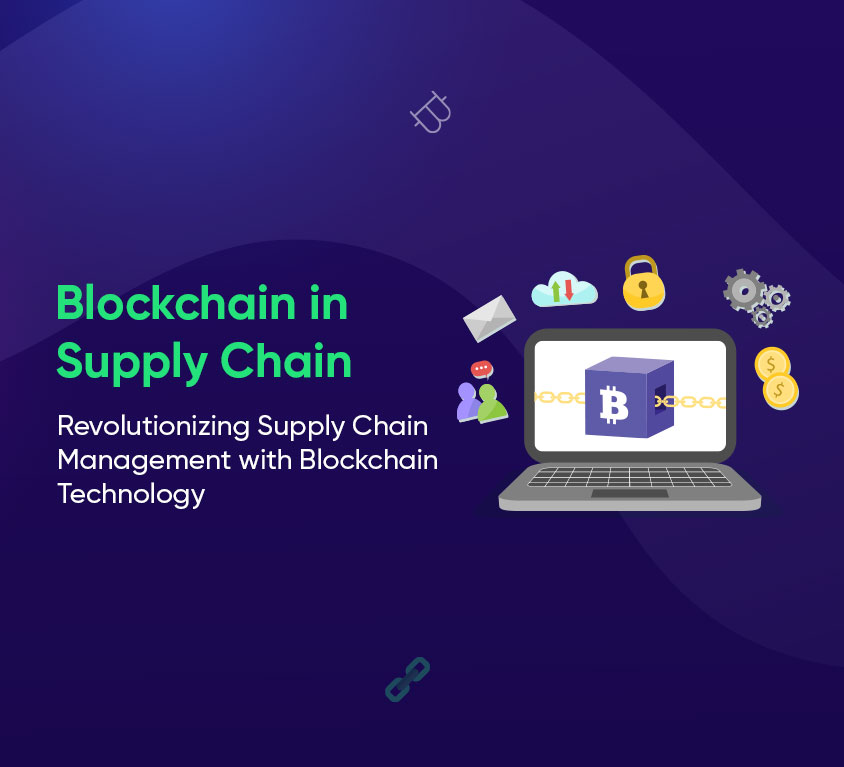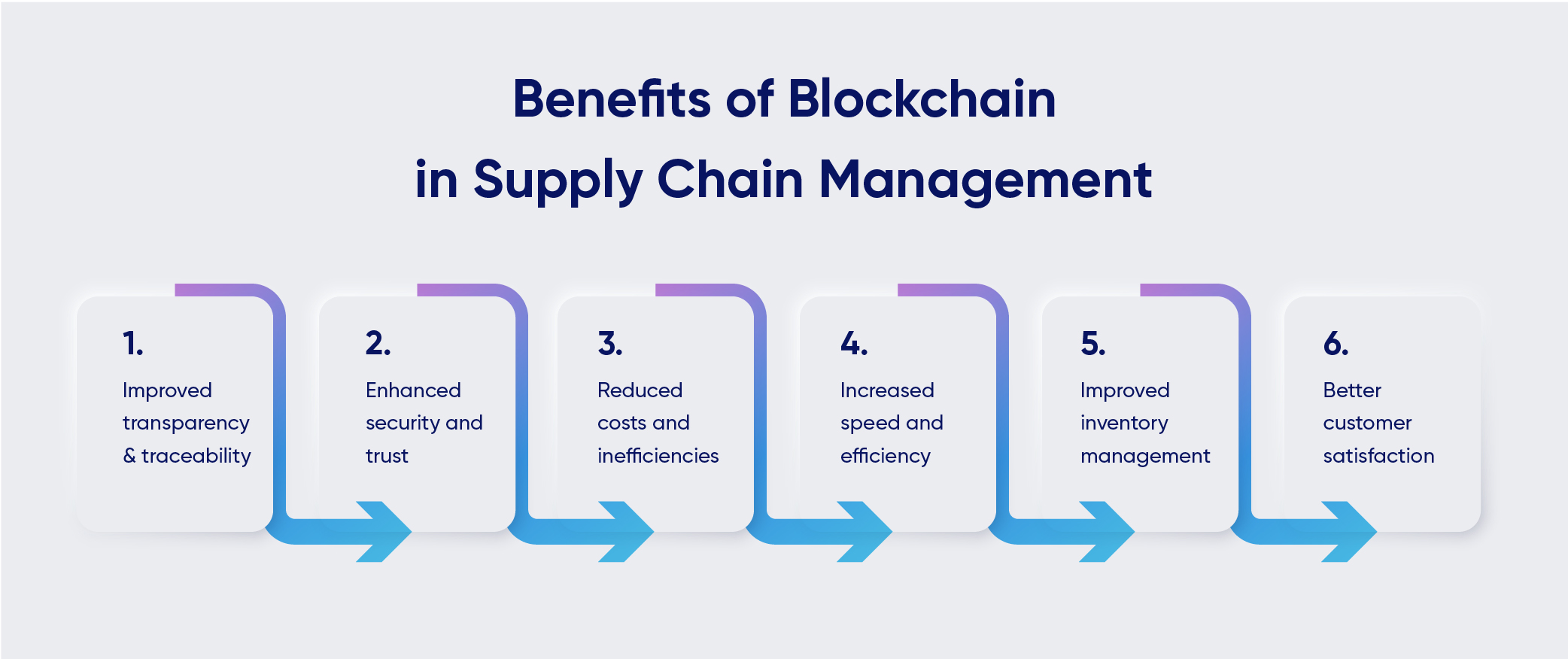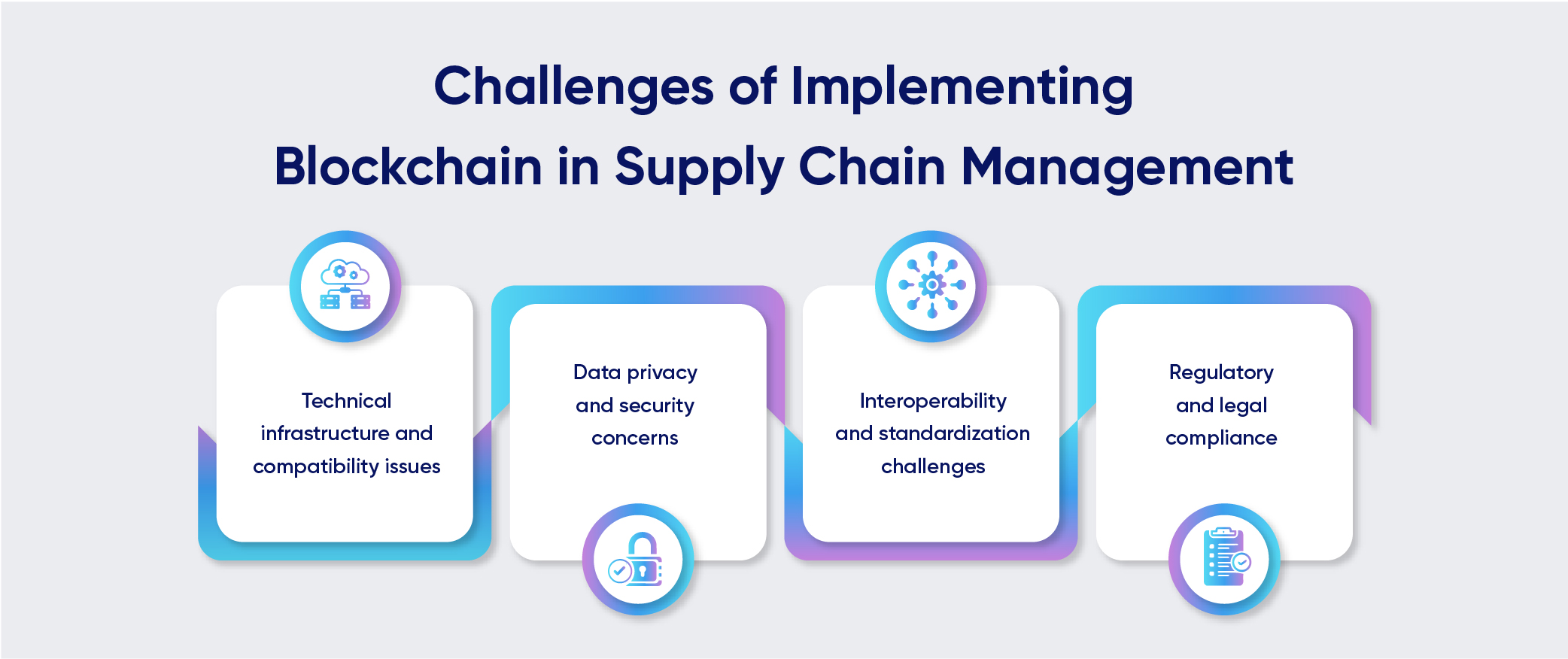
Introduction
Web3 & Blockchain Consultancy :
Blockchain in Supply Chain: Revolutionizing Supply Chain Management with Blockchain Technology
The supply chain industry determines the flow of goods and services. However, managing the supply chain with traditional systems costs high and makes it difficult to verify the authenticity of products. With the advent of blockchain technology, the supply chain industry has the potential to undergo a significant transformation. Blockchain’s decentralized and secure platform can be used to track and verify products throughout the entire supply chain, from the manufacturer to the consumer. By using blockchain in the supply chain industry, companies will get numerous benefits like increased transparency, ensuring that only authentic products reach the end consumer. So let’s dive in and discover how blockchain is changing the face of supply chain management.What is the blockchain in the supply chain?
Supply chain refers to the process of creating, producing, and delivering goods and services to the end consumer. While, blockchain is a decentralized, distributed ledger that can record transactions securely and immutably. Integrating blockchain-based systems in the supply chain industry can bring new ways of organizing, managing, and verifying the authenticity of goods throughout the entire supply chain, from the manufacturer to the consumer. As a result, supply chain partners can share and verify information securely and improve compliance with enhanced product traceability, logistics, and cargo tracking.
Use Cases of Blockchain in Supply Chain
1. Product Traceability
With traditional supply chain systems, it is hard to ensure the authenticity of goods throughout the entire supply chain, and is often prone to errors. Integrating blockchain technology can create a secure and transparent platform for tracking and verifying the authenticity of goods, making it easier to detect and prevent fraud and counterfeit products, and ensuring that only genuine products reach the end consumer.
2. Cargo and Logistics Tracking
Traditional methods of tracking the movement of goods and the status of logistics are critical. Blockchain technology can create a secure and transparent platform for tracking the movement of goods and logistics, providing real-time visibility and enabling supply chain partners to collaborate and make more informed decisions.
3. Supply Chain Finance
Traditional supply chain finance can be complex, with multiple intermediaries involved and high costs. Blockchain technology can enable smart contracts and decentralized platforms for financing, allowing for more efficient, cost-effective, and transparent supply chain financing.
4. Supplier Management
Managing suppliers, their performance, and compliance with regulations can be a tedious task in a traditional supply chain system. Blockchain technology can enable a more efficient and transparent way of managing suppliers by providing real-time monitoring, tracking, and verifications of suppliers’ activities and compliance.
5. End-to-End Traceability
Traceability of the supply chain is a crucial aspect in ensuring the authenticity and safety of goods, but traditional methods can be limited in their capabilities. Blockchain technology can provide end-to-end traceability, allowing for the tracking of goods from the point of origin to the end consumer. As a result, companies will get improved transparency increased accountability, and ensure compliance with regulations and industry standards.
6. Automation of Processes
Manual processes in the supply chain can have human errors and delays. Blockchain technology can enable the automation of various processes such as order management, inventory management, and payments through smart contracts, reducing errors and increasing efficiency.
7. Compliance and Auditing
Ensuring compliance with regulations and industry standards in the supply chain can be a time-consuming task. Blockchain technology can provide a secure and transparent platform for recording and verifying compliance and auditing, making it easier to detect and prevent non-compliance and ensuring that all supply chain partners are meeting their obligations.
Applications of Blockchain in Supply Chain Management
Blockchain technology provides a range of applications that can enhance and streamline supply chain management. Here are some of the key applications:1. Product tracking and tracing
Blockchain can provide end-to-end visibility and transparency for products in the supply chain, allowing businesses to track products from their origin to their final destination. This ensures that products are authentic, safe, and of high quality.
2. Quality control and compliance
Blockchain can help businesses ensure compliance with regulations and standards, as well as verify the quality of products and materials throughout the supply chain. This can help reduce the risk of recalls and other costly issues.
3. Payment and financial transactions
Blockchain can enable secure and transparent payment and financial transactions between supply chain partners, eliminating the need for intermediaries and reducing transaction costs.
4. Supplier and vendor management
Blockchain can provide greater transparency and accountability in supplier and vendor relationships, allowing businesses to manage and monitor performance more effectively. This can help ensure that suppliers and vendors meet quality and ethical standards.\

Real-world examples of Blockchain in Supply Chain Management
In recent years, many companies have implemented blockchain technology in their supply chain management systems. Here are some prominent case studies: First, in 2018, Walmart and IBM collaborated to create a blockchain-based platform for tracking food products in the supply chain. The platform aims to improve the traceability of food products, reduce food waste, and increase consumer trust in the food supply chain. Second, the world’s largest shipping company, partnered with IBM to create a blockchain-based supply chain platform called TradeLens. The platform enables real-time tracking of goods, improves transparency in the supply chain, and reduces paperwork and delays. Third, De Beers, one of the world’s largest diamond mining companies, created a blockchain-based platform called Tracr to track diamonds in the supply chain. The platform improves the transparency and traceability of diamonds and helps prevent the trade of conflict diamonds. These case studies demonstrate the potential of blockchain technology in improving supply chain management and enhancing transparency and traceability.Future of Blockchain in Supply Chain Management
Blockchain technology is expected to become even more prevalent in the supply chain industry in the future. Here are some potential developments that could be seen:- Potential for wider adoption and integration: As more companies become aware of the benefits of blockchain in supply chain management, there is potential for wider adoption and integration of this technology.
- The emergence of new use cases and applications: As the technology continues to evolve, new use cases and applications for blockchain in supply chain management are expected to emerge. This could include areas such as environmental sustainability and social responsibility.
- Collaboration and cooperation among stakeholders: Blockchain has the potential to create a more collaborative and transparent supply chain ecosystem, where all stakeholders can work together to improve efficiencies and reduce costs.
- Continuous improvement and innovation: As the technology continues to mature, there is potential for continuous improvement and innovation in the way that blockchain is used in supply chain management. This could include improvements in scalability and interoperability, as well as the development of new smart contract applications.
Conclusion
Blockchain technology has immense potential to transform the way supply chain management is conducted. However, challenges related to technical infrastructure, regulatory compliance, and cybersecurity must be addressed before widespread adoption. The future of blockchain in supply chain management is promising, with the potential for wider adoption and integration, the emergence of new use cases and applications, collaboration and cooperation among stakeholders, and continuous improvement and innovation. As businesses strive for greater efficiency and sustainability in their supply chains, blockchain technology is a powerful tool to help them achieve their goals. ,a href=”https://bloxbytes.com/contact-us/”> Follow BloxBytes for more insights!
Follow BloxBytes for more insights!